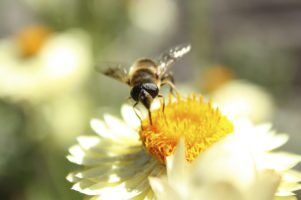

Environment
NFU Application To Use Banned Bee-harming Pesticides Rejected By Government
The NFU’s second application to allow farmers in some areas of England to use two banned bee-harming neonicotinoid pesticides has been rejected by the Government. This action by the Government has been welcomed by Friends of the Earth.
Friends of the Earth bee campaigner Dave Timms said:
“This is great news for bees and other wildlife. We are delighted the application has been refused.
Despite having the advantage of secrecy, the evidence submitted by the NFU failed to convince the Government’s pesticide advisors.
“The NFU risks damaging public trust in British farming with its repeated attempts to get these dangerous pesticides back into our fields – instead they should concentrate on promoting bee-friendly ways to control crop pests.
“The Government must do all it can to safeguard our under-threat pollinators. This should include maintaining the current ban on bee-harming pesticides – and committing to upholding and enforcing EU nature protection rules, which are now at risk as we plan our Brexit.”
Friends of the Earth had urged the government to refuse the application, pointing out that:
• Government figures show the average UK oilseed rape yield rose nearly 7% last year, in the first harvest after the ban was introduced
• Recent scientific evidence has added to the concerns about the impact of the three neonicotinoid pesticides on bees and other pollinators
• The neonicotinoid seed treatments allowed last year may not have been effective against Cabbage Stem Flea Beetle
• Crop losses due to Cabbage Stem Flea Beetle were lower this autumn, compared to the previous one
• Non-chemical means of minimizing pest damage to crops are available to farmers


 Environment12 months ago
Environment12 months agoAre Polymer Banknotes: an Eco-Friendly Trend or a Groundswell?

 Features11 months ago
Features11 months agoEco-Friendly Cryptocurrencies: Sustainable Investment Choices

 Features12 months ago
Features12 months agoEco-Friendly Crypto Traders Must Find the Right Exchange

 Energy11 months ago
Energy11 months agoThe Growing Role of Solar Panels in Ireland’s Energy Future




























